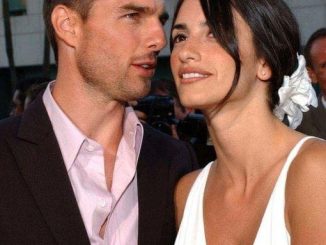Sir David Attenborough is a widely revered figure in the realm of natural history and broadcasting. With a career spanning over six decades, he has captivated audiences around the world with his nature documentaries, fostering a deep appreciation for the wonders of the natural world.
Early on, Attenborough’s fascination with the natural sciences led him to study at the University of Cambridge. After completing his studies, he embarked on a broadcasting career with the BBC in 1952. In the pioneering series “Zoo Quest,” Attenborough not only produced but also appeared on camera, setting the stage for his future endeavors and establishing his engaging and informative style.

In the 1970s, Attenborough made a significant shift in his career, transitioning back to content creation from administrative roles within the BBC. This shift led to the creation of the groundbreaking series “Life on Earth” in 1979, which reached an astonishing 500 million viewers worldwide. Attenborough’s subsequent works, such as “The Blue Planet” and “Planet Earth,” have been acclaimed for their extensive research, stunning cinematography, and his captivating narration.
What truly sets Sir David Attenborough apart is not only his immense knowledge of the natural world but also his ability to connect with audiences. His warm and engaging narration conveys both a sense of wonder and an urgent call for environmental conservation.

Throughout his illustrious career, Attenborough has received numerous accolades, including BAFTAs, Emmys, and the distinguished Order of Merit from Queen Elizabeth II. His unwavering commitment to raising awareness about the beauty and fragility of our planet has not only made him a respected broadcaster but also a global advocate for environmental issues. Even in his 90s, his work continues, leaving a lasting impact on future generations.
Now, at the age of 97, Sir David Attenborough openly admits to grappling with memory loss, particularly when it comes to remembering names during scriptwriting. However, this natural decline in memory does not hinder his career or disrupt his daily life. It is estimated that around 40% of people experience memory loss after the age of 65, but this does not necessarily indicate dementia. Attenborough firmly refuses retirement, declaring that “putting your feet up is all very well, but it’s very boring.”

Despite these memory challenges, Sir David Attenborough continues to inspire through his ongoing series, “Planet Earth III,” where he highlights the importance of coexisting with nature and takes on our responsibility towards it. His resolute dedication to his craft and his enduring passion for the natural world make him a living legend and an inspiration to people of all ages.

In the 1980s, this beautiful woman was on her way to becoming a Hollywood star. She won three Academy Awards when she was at the top of her game, but after that she became less well known. She looks so different now that she’s 67
In a timeless romance, Naval Officer Zack Mayo swept factory worker Paula off her feet, whisking her away from the mundane confines of her workplace. Debra Winger’s portrayal was the envy of fans worldwide, setting a standard for romantic tales in the iconic film “An Officer and a Gentleman”. Richard Gere’s depiction of Officer Zack Mayo, the dashing naval hero clad in his crisp blues, captured hearts across the globe.
Winger, now 67, retains her enduring beauty that first captivated audiences alongside Hollywood’s leading men. Recently, she’s shared glimpses of herself on social media, her once brown locks now naturally curly and silver. Winger’s career ignited with her debut in the 1976 film “Slumber Party ’57”, leading to a memorable role as Drusilla in the hit TV series “Wonder Woman” (1979), where she portrayed the spirited younger sister to Lynda Carter’s Diana Prince.

Despite early success, Winger bravely turned down further commitments on “Wonder Woman” to avoid typecasting, a decision that proved pivotal. Throughout the early 1980s, she garnered acclaim with Oscar and Golden Globe nominations for her roles in iconic films like “Urban Cowboy” (1980) alongside John Travolta, “An Officer and a Gentleman” (1982) as Paula, and “Terms of Endearment” (1983) as Emma, a poignant portrayal of a young woman facing mortality under the watchful eye of her mother, played by Shirley MacLaine.

Yet, amid rising stardom, Winger took a hiatus from Hollywood, sparking speculation that persists over four decades later. Rumors swirled about conflicts with co-stars, including reputed tension with Gere during the filming of “An Officer and a Gentleman”. Co-star Louis Gossett Jr., who played Sgt. Emil Foley, chronicled in his book “An Actor and a Gentleman” that their on-screen chemistry didn’t translate off-screen, attributing friction between Winger and Gere to creative differences.

Winger’s outspoken nature extended beyond Gere; she reportedly clashed with MacLaine on the set of “Terms of Endearment”, where their contrasting styles and personalities led to both friction and eventual camaraderie. The Hollywood grapevine buzzed with tales of Winger’s independence and occasional clashes, enhancing her mystique.

Following her hiatus, Winger returned to the spotlight with “Forget Paris” (1995) alongside Billy Crystal before taking another break to focus on family life in New York City with her husband, actor Arliss Howard. She returned to acting with “Big Bad Love” (2001) and gained further attention with the documentary “Searching for Debra Winger” (2002), exploring her decision to step away from the limelight at the peak of her career.

Reflecting on her Hollywood journey, Winger has remained philosophical, viewing Los Angeles as a place rather than a concept of stardom. Her recent roles in films like “Rachel Getting Married” (2008), “The Lovers” (2017), and “Kajillionaire” (2020) underscore her enduring talent and commitment to diverse roles, reinforcing her status as a cinematic icon who defies easy categorization.

In 2021, Winger appeared in the anthology drama “With/In”, Volume two, in a segment titled “Her Own”, directed and written by her husband Arliss Howard. Her ongoing career continues to surprise and delight audiences, proving that while Hollywood’s landscape may evolve, Debra Winger’s allure and talent endure.



Leave a Reply